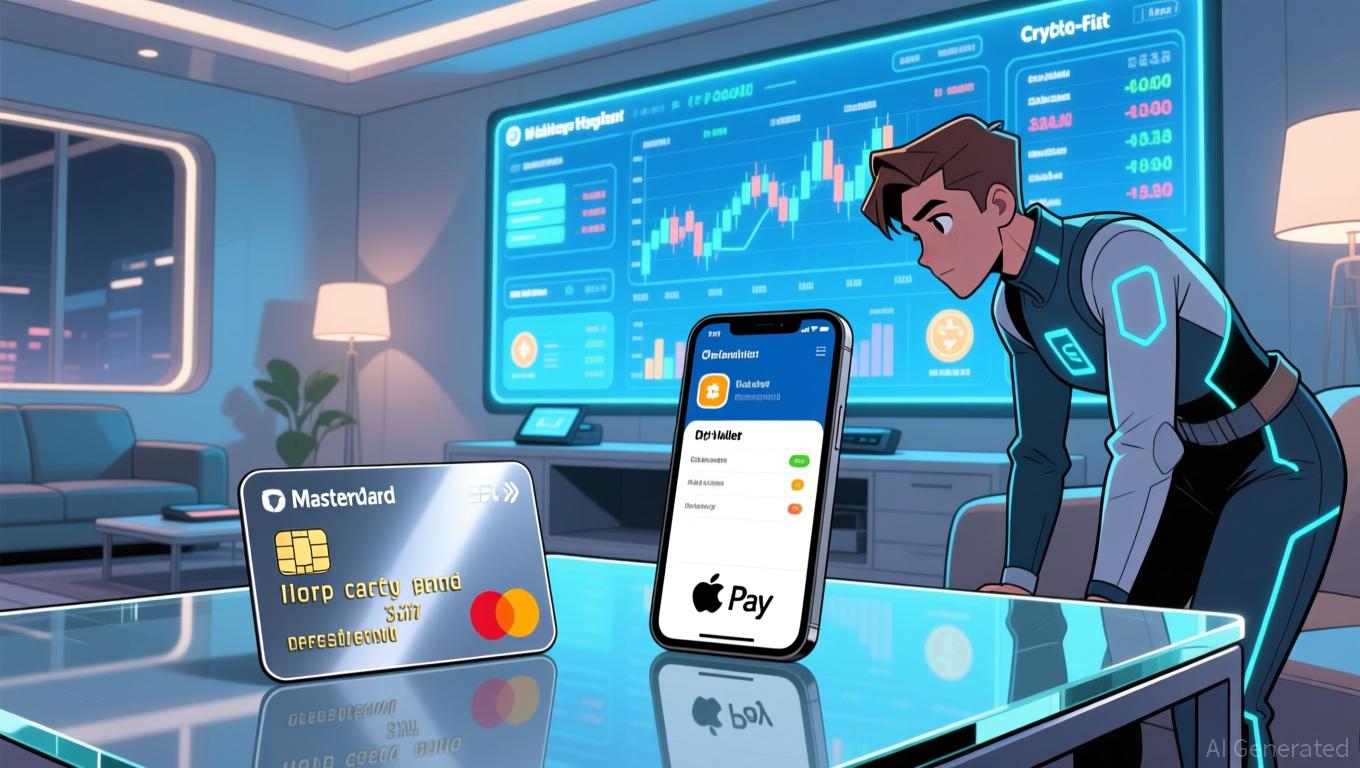JPMorgan and DBS Develop Cross-Chain Bridge to Compete with Stablecoin Leaders
- JPMorgan and DBS Bank launch cross-chain framework for real-time tokenized deposit transfers between institutional clients, bypassing traditional payment systems. - The "interoperability highway" enables 24/7 settlements across public/private blockchains while maintaining consistent token value, expanding cross-border transaction capabilities. - As 1/3 of global banks explore tokenized deposits, the partnership challenges stablecoin dominance by offering institutional-grade cross-chain solutions with red
JPMorgan Chase & Co. and DBS Bank, Singapore’s top financial institution, are working together to develop a cross-chain system that will enable institutional clients to transfer tokenized deposits instantly. This represents a significant evolution in how established banks are building digital asset infrastructure, according to a
This collaboration builds on JPMorgan’s recent ventures into decentralized finance (DeFi), such as issuing a USD deposit token on Coinbase’s Base blockchain, as noted by
This trend underscores intensifying rivalry in the stablecoin and tokenized asset sectors. Although U.S. dollar-backed stablecoins like
At the same time, Asian economies are forging their own approaches. Japan has introduced one of the earliest regulatory frameworks for stablecoins, while Singapore’s DBS is using its alliance with
Some critics point out that tokenized deposits, despite their potential, still face obstacles related to scalability and regulatory compliance. Nonetheless, supporters such as DBS’s Rachel Chew highlight the adaptability these solutions provide for global enterprises, allowing for instant settlements and greater access for institutional clients, according to a Coinpedia report. As the sector continues to develop, the progress of frameworks like those from JPMorgan and DBS could establish new standards for interoperability and institutional use in cross-chain environments.
Disclaimer: The content of this article solely reflects the author's opinion and does not represent the platform in any capacity. This article is not intended to serve as a reference for making investment decisions.
You may also like
Cardano News Update: MoonBull's AI Wager—Will It Surpass Cardano and Ethereum by 2025?
- MoonBull's $590,000 presale gains traction as a 2025 crypto contender, leveraging AI features and community governance. - Cardano partners with Wirex to launch ADA-branded crypto payment cards, aiming to bridge blockchain and traditional finance. - NFT and memecoin markets show 12-11% weekly gains, while Ethereum and TRON compete with MoonBull for 2025 growth narrative. - Regulatory risks and macroeconomic pressures persist, challenging projects like JFrog and Bumble amid crypto market volatility.
Bitcoin Updates: China Challenges Validity of US $13 Billion Crypto Seizure
- China accuses U.S. of central role in 2020 LuBian $13B Bitcoin heist, alleging state-linked hacking involvement. - CVERC disputes U.S. seizure legitimacy, citing 4-year dormancy and 2024 government wallet transfers as atypical criminal behavior. - DOJ claims $13B seizure is "largest forfeiture in history," while China frames it as geopolitical strategy to undermine crypto influence. - Dispute highlights escalating U.S.-China tensions over digital asset governance and cross-border enforcement norms.
A former doctor has introduced Robyn, a compassionate AI partner

Cardano News Update: EMCD’s Crypto Card Connects Blockchain with Everyday Purchases
- EMCD launched a free crypto payment card enabling USDT spending via Mastercard , Apple Pay, and Google Pay, bridging digital assets to daily transactions. - Competitors like Exodus and Jour Cards introduced similar tools, targeting unbanked populations and expanding crypto utility for iTunes, gift cards, and global remittances. - Stablecoin transaction volumes hit $46 trillion in 2025, with 19% of crypto owners projected to use digital assets for payments by 2026, per eMarketer. - Traditional banks like
